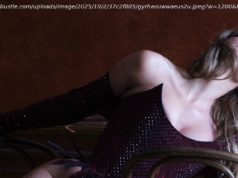As Russian President Vladimir Putin called for nations to set aside their differences and pop star Robbie Williams featured in a musical opening ceremony, Russia made a dream start to the 2018 FIFA World Cup with a thumping 5-0 victory in their opening game against Saudi Arabia.
The win — the biggest by a host nation in the opening game of a World Cup since Italy in 1934 — gives Russia precious three points in a tournament which is only going to get harder for Stanislav Cherchesov’s men with fixtures against Egypt and Uruguay still to come in Group A.
This week Putin had said the hosts — going into the tournament ranked 70th in the world, three places below Saudi Arabia, and without a victory in seven matches — would «fight until the end,» but, in this match at least, a poor Saudi Arabia proved to be obliging opponents as they gave the hosts freedom in possession and, crucially, the opposition box.
Billions watching, billions spent
An estimated global television audience of three billion is expected to watch events unfold over the next few weeks as 32 countries compete in 64 games over 32 days.
Hosting an event which is being held across 11 cities and spread over 1,800 miles does not come cheaply, however, with around a reported $14 billion spent on bringing football’s showpiece event to the world’s largest country.
Much of the outlay has been on building or refitting 12 new stadiums, modernizing 20 railway stations, repairing hundreds of kilometers of roads and expanding airports.
But little attention will be paid on expenditure over the next few days as the host nation celebrates a sensational victory which will boost hopes of progressing to the knockout stages.
Fab five
Midfielder Gazinsky gave his country the perfect start, arrowing a header into the bottom corner in the 12th minute with his first effort on target, and substitute Cherushev doubled the hosts’ advantage just before the break.
Replacing the injured Alan Dzagoev, Cherushev became the first substitute to score in an opening World Cup match.
The Villareal player — one of only three members of Russia’s squad to play abroad — left two defenders, Omar Hawsawi and Mohammed Alburayk, sprawled on the floor as he cut inside and struck at the near post before halftime for his first international goal.
But it was his second strike in the game’s closing minutes which took the breath away. Collecting the ball on the edge of the box, the midfielder finished with the outside of the boot for a goal which will surely be regarded as one of the best in the tournament.
Even before Cherushev’s wonderful late long-range effort, Dzyuba — another substitute — had all but made sure of the victory as he headed home Aleksander Golovin’s cross after the break, sparking raucous cheers and the giddy waving of Russian flags.
Provider Golovin, the youngest player in Russia’s squad, turned poacher as he curled home a free-kick in injury time for Russia’s coup de grace. It had all seemed too easy for the hosts.
Saudi Arabia rarely threatened. Before Dzyuba had struck for Russia’s third, Taisser Aljassam had an opportunity to halve the deficit, but the midfielder could not connect to the ball in front of an open goal and that was as good as it got for the visitors.
Political tensions, fan fears
Much of the focus on this tournament has concerned more than football: there are political tensions to consider and fears of fan violence, racism and homophobia.
In 2010, when Russia won the right to host a World Cup for the first time — controversially beating bids from England and a unified Spain and Portugal in a secret ballot — President Putin wanted to engage with the world, show his country as a world power. Russia was also enjoying nearly a decade of economic growth.
Eight years on, and it is a world much changed.
The Russian economy is now stagnant, western sanctions have been placed on the country, allegations made of Russian meddling in the 2016 US presidential election, reports of cyber attacks and this year Russian diplomats were expelled from the UK after the poisoning in an English city of Sergei Skripal, the Russian former double agent.
Only this month British lawmakers warned England fans visiting Russia that they were at serious risk of homophobic, racist and anti-British attacks and hours before the opening match began a UK-based gay rights activist was briefly detained by police.
According to Members of British Parliament, Russia’s homophobic laws mean openly gay and lesbian supporters «not only face the risk of violence from vigilante groups, but lack adequate protection from the state.»
Recently the Russian Football Union was fined £22,000 for racist chanting by fans during a friendly against France in March and FIFA, the sport’s governing body, has reiterated that officials can stop, suspend or abandon games if they are alerted to racist chanting at matches.
Adding to anxieties, the bloody violence in the French city of Marseille during Euro 2016 put the spotlight on Russian hooliganism, though Russian authorities have given their assurances that fans will be safe from violence during the month-long tournament.
Even on the day of the opening World Cup match, there was political tension between the two countries represented on the pitch as Russia said it was «gravely concerned» about the Saudi-led coalition’s offensive on Yemen’s port city of Hodeidah and urged «for soonest suspension of the military action.»
Back in the Luzhniki Stadium on either side of FIFA President Gianni Infantino sat Putin and Crown Prince Mohammed bin Salman. After Russia’s first goal television coverage switched to the watching dignitaries in the stands as the Crown Prince shook hands with Putin.
‘We all share the love of football’
Speaking before kick-off in front of a partisan crowd, Putin described his homeland as an open, hospitable and friendly country and wished fans an unforgettable experience.
«Wherever we live, no matter what traditions we follow, we all share the love of football in one team, united by our love for this spectacular, bright, uncompromising game. That’s why all the members of this team understand and feel for each other well,» he said in remarks released by the Kremlin.






